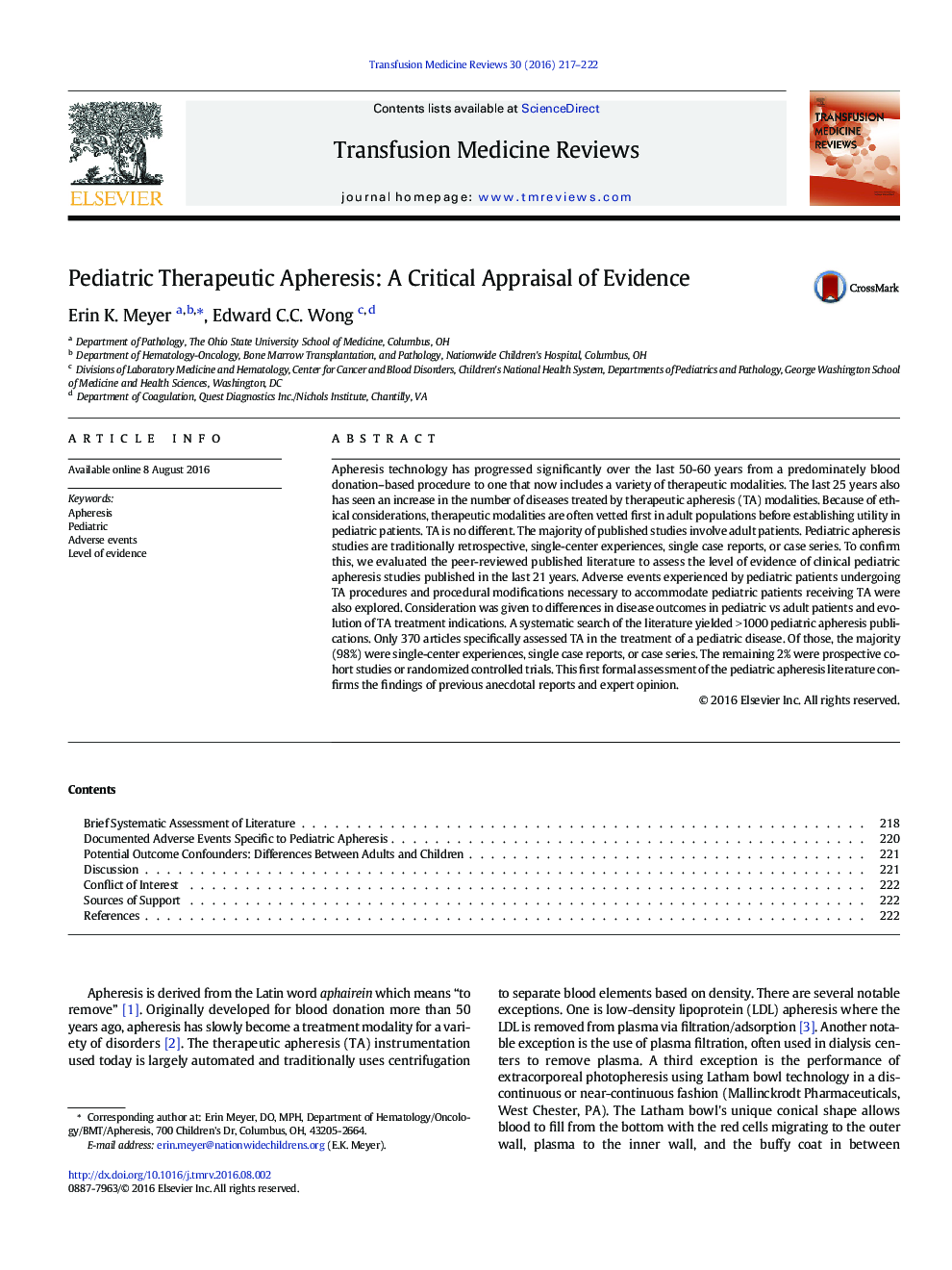| Article ID | Journal | Published Year | Pages | File Type |
|---|---|---|---|---|
| 3336447 | Transfusion Medicine Reviews | 2016 | 6 Pages |
•Majority of published studies in pediatric apheresis are retrospective.•Heterogeneity of pediatric patients often requires procedural modifications.•Utility of apheresis in pediatrics is uncertain.•Well-designed studies are needed to evaluate role of apheresis in pediatric diseases.
Apheresis technology has progressed significantly over the last 50-60 years from a predominately blood donation–based procedure to one that now includes a variety of therapeutic modalities. The last 25 years also has seen an increase in the number of diseases treated by therapeutic apheresis (TA) modalities. Because of ethical considerations, therapeutic modalities are often vetted first in adult populations before establishing utility in pediatric patients. TA is no different. The majority of published studies involve adult patients. Pediatric apheresis studies are traditionally retrospective, single-center experiences, single case reports, or case series. To confirm this, we evaluated the peer-reviewed published literature to assess the level of evidence of clinical pediatric apheresis studies published in the last 21 years. Adverse events experienced by pediatric patients undergoing TA procedures and procedural modifications necessary to accommodate pediatric patients receiving TA were also explored. Consideration was given to differences in disease outcomes in pediatric vs adult patients and evolution of TA treatment indications. A systematic search of the literature yielded >1000 pediatric apheresis publications. Only 370 articles specifically assessed TA in the treatment of a pediatric disease. Of those, the majority (98%) were single-center experiences, single case reports, or case series. The remaining 2% were prospective cohort studies or randomized controlled trials. This first formal assessment of the pediatric apheresis literature confirms the findings of previous anecdotal reports and expert opinion.
